A French soldier deployed to Operation Barkhane was killed in Mali on Saturday, November 2, the Armed Forces Ministry said in a release.
In a later statement, Islamic State claimed its fighters carried out the attack.
At around 11 a.m. Paris time, a Barkhane Force Véhicule Blindé Léger (VBL light armoured vehicle) that was being used to protect a convoy between Gao and Menaka was struck by an explosive device and overturned, the French defense ministry release said.
A medical team immediately responded to support the vehicle’s crew, while a Tigre attack helicopter secured the area.
The VBL crew was evacuated by Cayman helicopter to Gao, where “the death of Brigadier [corporal] Ronan Pointeau, of the 1st Spahis Regiment,” was recorded.
The condition of the other people who were in the VBL “does not cause concern,” the release said.
“This insidious attack shows the importance and harshness of the fight against terrorist armed groups in securing the Liptako,” the ministry said, adding that Barkhane is “pursuing this struggle with determination alongside its partners, in order to restore peace and support the return to normal life for the people of the Sahel.”
In a statement, ISIS claimed fighters from its West Africa Province affiliate targeted a convoy of French vehicles in the Indelimane area of the the Menaka region, detonating an explosive device which damaged the vehicle and killed and injured those on board.
The statement came shortly after ISIS claimed its fighters were responsible for a Friday attack on a Mali military base in Indelilmane that killed at least 49 people.
In 2012 a Tuareg separatist uprising against the state was exploited by Islamist extremists linked to al-Qaeda who took key cities in Mali’s desert north.
France began its Operation Serval military intervention in its former colony early the next year, driving the jihadists from the towns, and the MINUSMA peacekeeping force was then established.
But the militant groups have morphed into more nimble formations operating in rural areas, and the insurgency has gradually spread to central and southern regions of Mali and across the borders into neighboring Burkina Faso and Niger. Large swathes of Mali remain outside government control, and inter-ethnic bloodshed is a regular occurrence.
Many armed groups are active in Mali and the wider Sahel region, including Islamic State-affiliated groups. Since May, ISIS has attributed insurgent activities in the Mali-Burkina Faso-Niger tri-border area to its West Africa Province affiliate, rather than to what was previously known as Islamic State in the Greater Sahara.
The majority of attacks are attributed to the Group to Support Islam and Muslims (JNIM) which formed in March 2017 from a merger of several smaller groups including the Sahara branch of al-Qaeda in the Islamic Maghreb, Ansar Dine and Al-Mourabitoun. JNIM’s leadership has pledged allegiance to al-Qaeda leader Ayman al-Zawahiri.
The Serval mission evolved in August 2014 into Operation Barkhane, which has a mandate for counter-terrorism missions across the Sahel. Roughly 4,500 French troops are deployed in the region, including around 2,700 soldiers in Mali. Personnel from Estonia and helicopters from the United Kingdom support the Barkhane force, and Denmark is to send two helicopters and up to 70 troops in December.
Barkhane focuses activity in insurgent-hit Mali, Niger and Burkina Faso, and troops work alongside other international operations, including the roughly 14,000-strong MINUSMA United Nations stabilization mission in Mali, and the G5 Sahel Joint Force, the long-planned 4,500-strong joint counter-terrorism force comprising troops from Burkina Faso, Chad, Mali, Niger and Mauritania.
France has begun asking its European partners to send special forces to the Sahel to assist and improve the basic training for local forces, and hopes to form a new Combined Joint Special Operations Task Force under French command.
U.S. officials said in August that the U.S. will seek additional contributions from the Global Coalition Against ISIS to combat the group and its affiliates in Africa. At the request of France, members of the U.S.-led Coalition will meet in Washington on November 14.



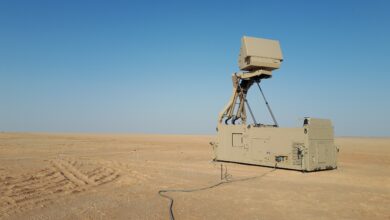
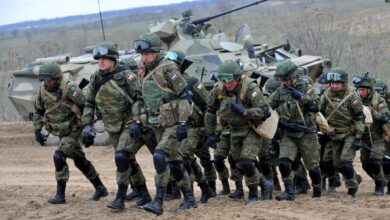
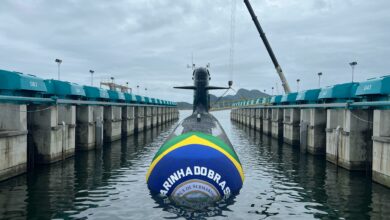
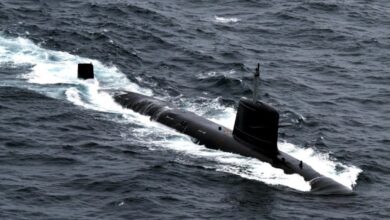
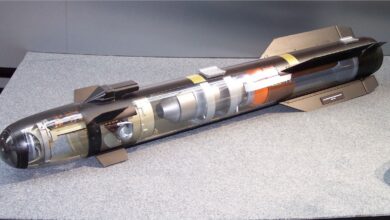

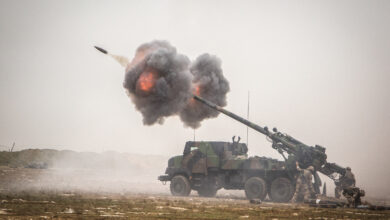

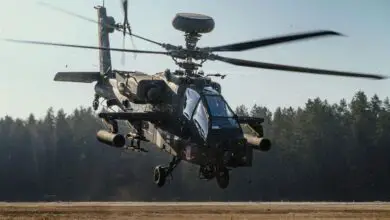
4 Comments